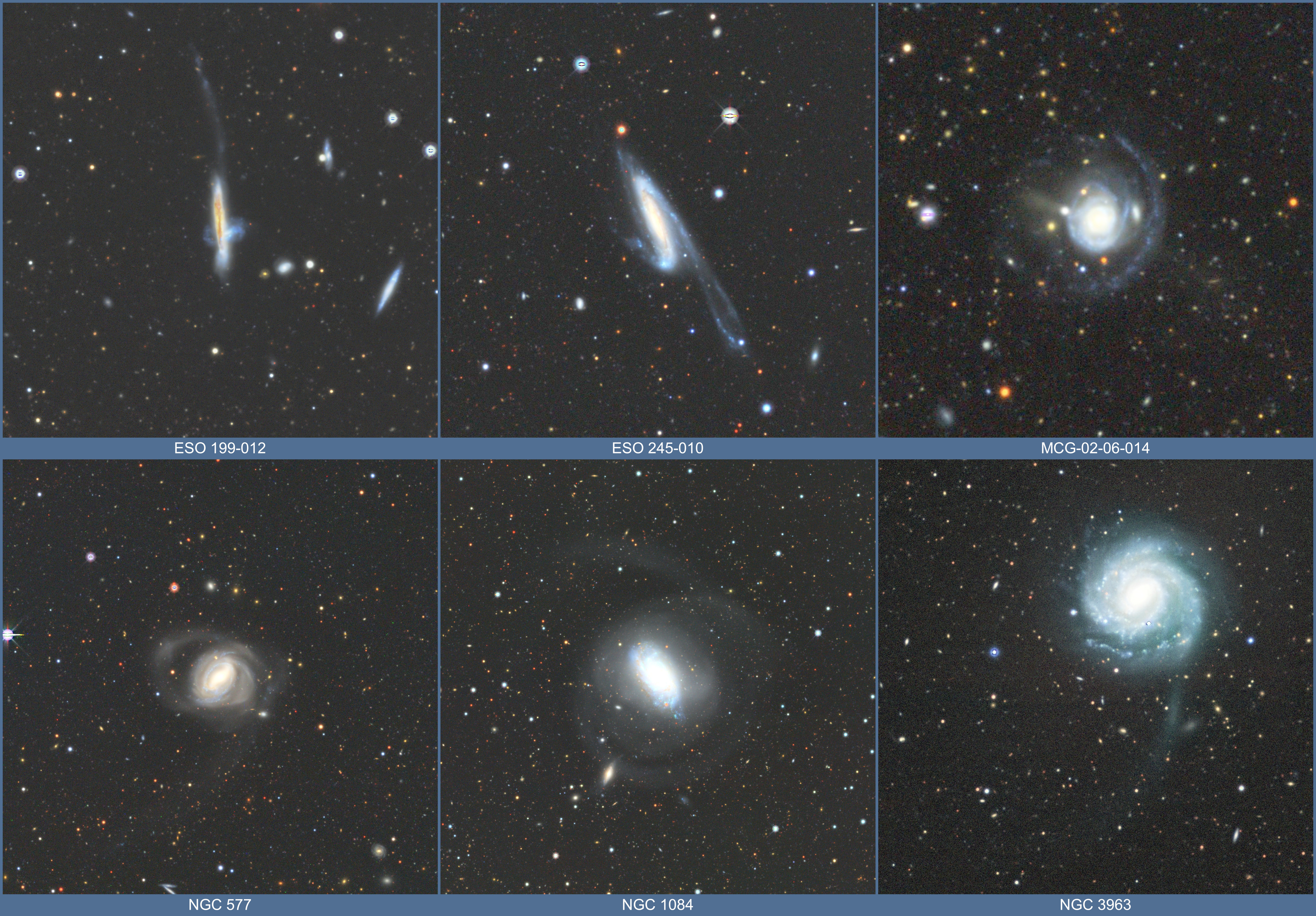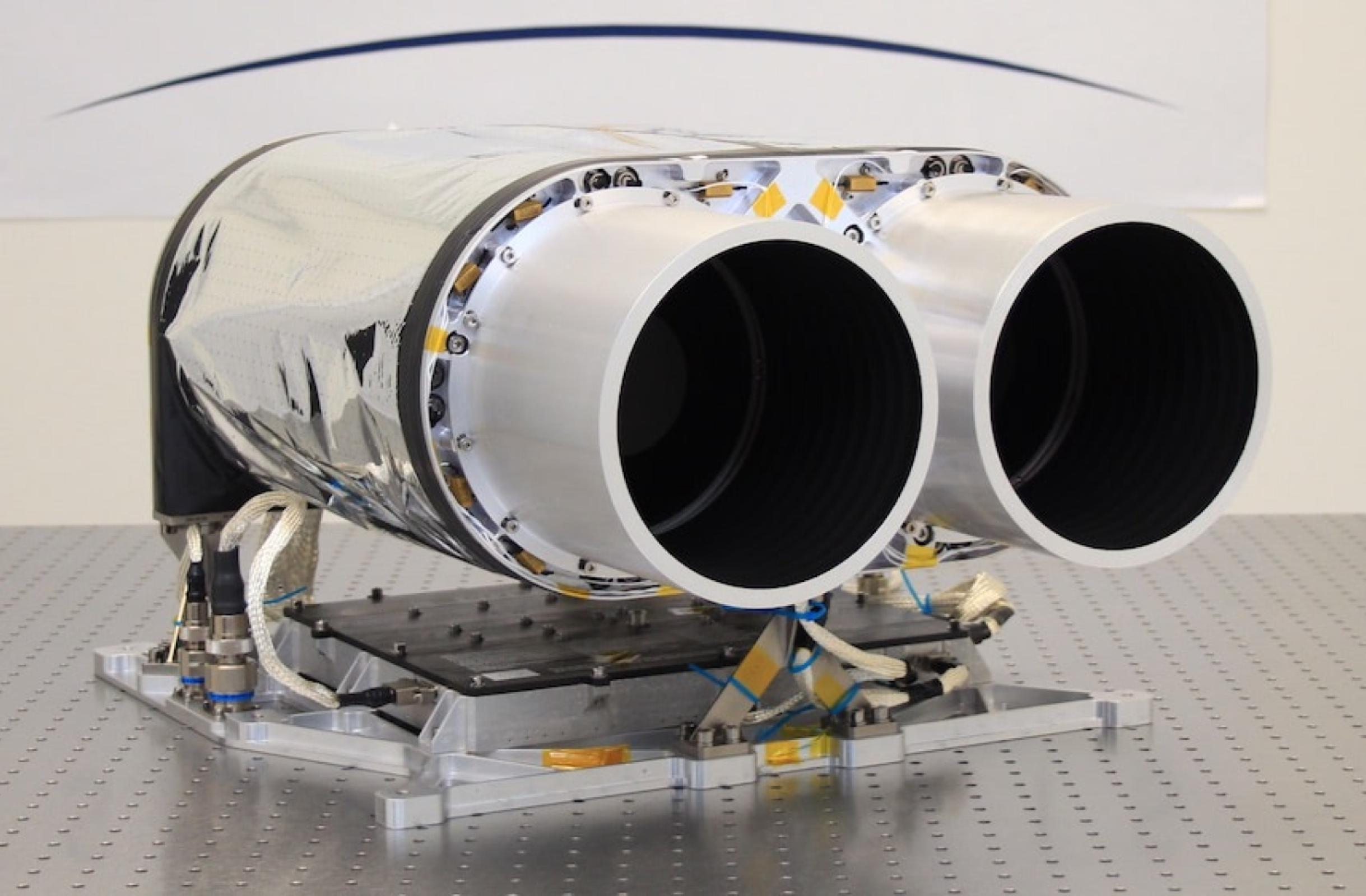The mission has successfully completed one of the critical phases and begins to work on central instrument to study dark matter
In Santander, 29th May 2024
The
European Space Agency (ESA)
space mission ARRAKIHS
(Analysis of Resolved Remnants of Accreted galaxies as a Key Instrument for Halo Surveys) reached an important milestone in March: the Instrument Preliminary Requirements Review (iPRR) was successfully passed. As a result, ESA
approved the completion of Payload/Instrument Phase A, announcing that ARRAKIHS Payload is ready to start Phase B this May. The duration of Phase A, only 6 months, is in line with the mission's adherence to the spirit of ESA's fast mission program, advancing rapidly and efficiently.
This Payload is the brain of ARRAKIHS,
an instrument composed of two visible cameras and two infrared cameras developed by the Spanish company Satlantis to obtain the deep images of the Universe necessary for the scientific objectives of the mission. Successfully passing this iPRR is a very important step that brings the adoption of ARRAKIHS closer as the next fast-class mission in the ESA's Scientific Program (F2). The final decision on its adoption is expected to be made in the first half of 2026.
"ARRAKIHS is a very beautiful mission, focused on a very specific objective, which is to try to demonstrate the nature of dark matter by obtaining very deep images in the halos of galaxies like the Milky Way," explains
Rafael Guzmán, leader of the ARRAKIHS mission consortium (AMC) and research professor at the Institute of Physics of Cantabria (IFCA, CSIC-UC), the center leading the space mission.
The remnant of dark matter
The objective of the ARRAKIHS mission is to explore the Universe to understand the nature of the dark matter that comprises it. "To explain the structure and dynamics of our cosmos, it has been necessary to introduce a type of component that we cannot observe directly, but that gravitationally influences the movement of stars and galaxies," explains Guzmán. This is dark matter, which, according to the research community, constitutes
more than 80% of the matter in the universe, and its effects can be revealed by the characteristics of stellar streams, faint traces of stars left by small galaxies orbiting in the halo of large galaxies like our Milky Way as they are destroyed by gravitational interaction.

Image of stellar tidal streams observed from ground-based observatories./ David Martínez-Delgado/Giuseppe Donatiello).
4 high-precision cameras
To analyse these effects, ARRAKIHS will observe a representative sample of Milky Way-like galaxies in the local universe at very low levels of surface brightness, never achieved at visible and infrared wavelengths, using
four high-precision cameras aboard a satellite that will orbit the Earth at around 800 km altitude.
"The successful completion of the iPRR marks a pivotal moment for ARRAKIHS," said
Santiago Serrano, the instrumentation team lead (Satlantis and Institut d’Estudis Espacials de Catalunya, IEEC). "Our team has demonstrated remarkable technical expertise and dedication to advancing the mission at an extraordinary stage. We are excited to move the instrument payload forward to Phase B."

Flight model of the iSIM-170 binocular camera validated on the Japanese KIBO module of the ISS in 2020./ Satlantis.
The approval of the iPRR concludes a very intense period of work that began last October and ended in early March.
Rafael Guzmán thanked the team for "the great effort to overcome this phase in such a short time". And he emphasized "the spectacular work done by the instrumentation team, led by Santiago Serrano, with the support of the AMC Science and Ground Segment team and the effective coordination of the ARRAKIHS instrument project office".
“This review is a crucial step for us. It means we’re getting ready for the more detailed and expensive phases of development, boosting our chances of making the entire mission a success”, comments
Stefan Kögl, the Instrument Project Manager of ARRAKIHS. “Our emotions changed from focused determination throughout the data pack preparation to relief and pride at the achievement of the data package delivery”, affirm.
The Director of IFCA, the leading institution of ARRAKIHS,
Patricio Vielva comments that "IFCA is pleased that the ARRAKIHS payload has advanced to the next evaluation phase, a crucial step toward ESA's adoption of the mission. This progress highlights the excellent work of the ARRAKIHS team in proving the feasibility of critical instrumentation for the mission.”
Next steps towards 2030
The ARRAKIHS team
will now work for two years to achieve the goal of successfully completing Phase B with the approval of the Instrument Preliminary Design Review (iPDR) in the first half of 2026. This will be the last of different steps in the decision for ARRAKIHS to be adopted as the next fast-class mission in the ESA's Scientific Program (F2),
with an estimated launch date of 2030.
The ARRAKIHS mission consortium is led by Spain, with important contributions from Switzerland, Belgium, Sweden, Austria, United Kingdom and Portugal with additional contributions to science from Holland, Norway, US, Taiwan and Thailand. The ARRAKIHS consortium also includes companies from the aerospace sector led by the Spanish company Satlantis, which is responsible for the Payload.
ARRAKIHS in Spain
"The origin of ARRAKIHS is in Spain. It was born as an idea from a group of Spanish astrophysicists; but we were aware that a project of this magnitude could not be carried out without the participation of more groups and more countries. The enthusiasm and involvement of all of us working for ARRAKIHS in Spain is magnificent, and that makes the coordination and management of these groups easy," says
Dr. M. Ángeles Gómez-Flechoso (UCM), coordinator of the Spanish nodes and responsible for the Survey Strategy of ARRAKIHS.
Sandra Carcedo / IFCA Communication
